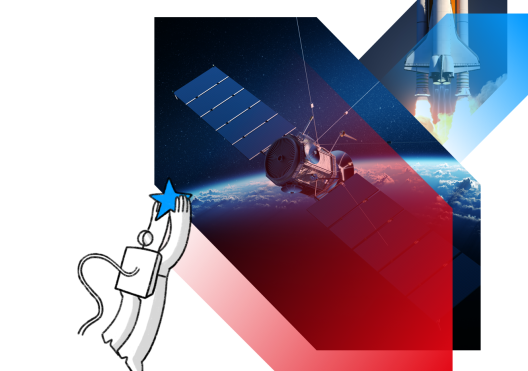Building on its expertise in satellites, Luxembourg is becoming a key player in the world of commercial space ventures, a transformation aided by generous government funding, a solid regulatory environment, and an attractive tax regime.
Ever since the founding of global satellite leader SES in 1985, Luxembourg has aspired to play a greater role in space exploration and commercial space ventures. In the last few years, key steps have been taken to achieve these ambitions. The space sector now accounts for two percent of Luxembourg’s GDP, and around 70 companies engaged in space activities as well as research organisations are currently active in the field. Luxembourg is increasingly seen as a centre for ‘new space’ industries, and the next few years will be an exciting time as the country stands at the forefront of endeavors such as asteroid mining.
Setting the stage
Luxembourg’s foray into space technology began with a boom in 1985, when the satellite company Société Européenne des Satellites, better known as SES, was created in a public-private partnership, launching its first Astra satellite three years later. SES has since grown to be the world’s largest communications satellite operator. The government searched for ways to diversify the economy and build on its growing status as a leader in high-tech fields, eventually developing the country as an important data centre. Moving into space ventures was seen as both a sensible and exciting move. In 2016, the government created Space Resources, an initiative to establish a unique legal, regulatory, and commercial environment to attract investors, companies, and innovators. The next big step was in 2017, when Luxembourg became the first country in Europe to create a legal framework securing property rights for resources obtained in space. The following year saw the creation of the Luxembourg Space Agency (LSA).
Government initiatives
The LSA is tasked with supporting the commercial space sector in Luxembourg by fostering business and helping companies get access to financing and research. So far, the LSA has been quite successful, going by the number of space companies operating in Luxembourg and the deluge of interest in the country as a space hub. The LSA has also developed a working relationship with the American space agency NASA. Currently in discussion are collaborations on space applications, exploration, resources, and the sharing of scientific data. The two agencies have also expressed interest in working together on lunar exploration and developing commercial opportunities on the moon.
In 2020, the government announced a new five-year national action plan for space science and technology, providing for nearly €200 million of funding, much of it for domestic projects yet some of it for the European Space Agency (ESA), which Luxembourg has been a member of since 2005. The country also provides substantial assistance with R&D grants, and Luxembourg’s membership in the ESA gives access to European support for companies based in Luxembourg. On top of that, the government has created LuxIMPULSE, run in coordination with the LSA and ESA, which provides further funding for space projects. The government has also been investing in space funds, most recently in Orbital Ventures, which is based in Luxembourg and will prioritise putting money into innovative companies that are already generating revenue or will do so in the near future.
A growing private space industry
According to many observers, Luxembourg is becoming the European centre for the so-called ‘new space’ industry, sometimes called Space 5.0. In addition to government support and a growing wealth of research and expertise, companies are attracted to Luxembourg for its business-friendly climate and attractive tax regime. Consequently, it’s already home to a plethora of innovative space tech companies. One of these is Spire Global, a leader in space-to-cloud analytics that has opened its data lake to Luxembourg start-ups, research organizations, and public agencies. Another is ispace Europe, a branch of the Japanese robotics company that specializes in rovers and landers. Its Luxembourg unit is currently working on methods to extract water from the moon. Other innovative space companies located in the Grand Duchy are geospatial intelligence agency Aistech Space, electronics and software company EmTronix, and microsatellite manufacturer LuxSpace.
Stay informed! Sign up to receive our latest updates.
Planning your event in the Grand Duchy? We'd love to help.





